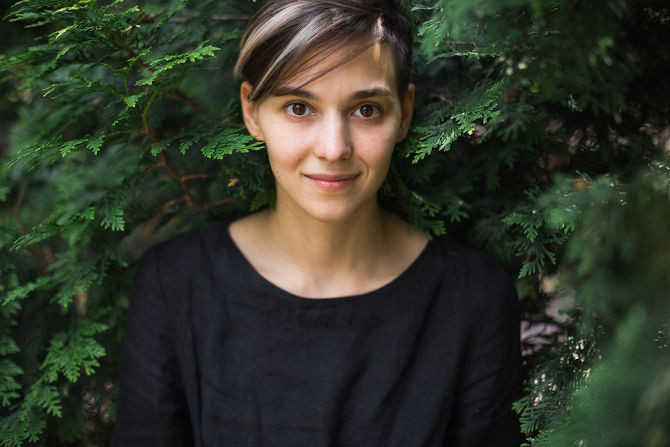In the words of Daria Andrieieva: “Violence against women is not a distant problem, but something that everyone can and should address.”
Date:

Daria Andrieieva is a feminist activist working to address gender-based violence in Ukraine. For over three years she has been conducting workshops and lectures on the culture of consent and bystander intervention. During the 16 Days of Activism campaign, with the theme “#GenerationEquality stands against rape”, she is supporting UN Women to engage younger audiences on consent culture.
It is impossible to work on the issue of violence and ignore the fact that women suffer disproportionately more than men. This is what turned my attention to women’s rights and I started to identify as a feminist.
It is important for me to talk about consent and understanding your own and other’s boundaries, which are interlinked. If young people understand their own bodies, they are less likely to violate someone else’s boundaries. It is important to stress not how women should avoid unwanted attention, or how not to provoke violence, but instead focus on teaching bystanders how to confront violent situations. This approach shows that violence against women is not a distant problem, but something that everyone can and should address.
I became interested in the subject of gender-based violence after the flashmob #янебоюсьсказати (#Iamnotafraidtosay), that preceded #MeToo and became an outlet for women in Ukraine to share their stories of sexual harassment and assault. As I was reading so many women’s posts, I thought that somehow, I had never experienced sexual harassment. It took me several days to realize some of the suppressed memories, which often happens to survivors. Before I had deeply reflected on my experiences, I would have said that it never happened to me. I believe that many people don’t realize they have been through experiences of sexual violence, they don’t think or talk about it, they reinforce taboo and stigma around this topic. This also skews statistical evidence.
There are so many myths out there. For instance, the question: “What about the women who falsely accuse men of rape?” is brought up by a man in the room at most of my lectures. Even in my legal research, I would come across deeply problematic articles by legal professionals and defense lawyers saying that “no” doesn’t always mean “no” when a woman says it.
I’m very pragmatic. I work with youth to teach them to set boundaries. I think that women who historically were not encouraged to set boundaries and to use the word “no” can be more vulnerable to violence because perpetrators are opportunistic. This is why it is also important to address toxic masculinity. I believe that men should work on creating a healthier, better value system for themselves. I have a six-year-old son and I am worried of the effects that toxic masculinity culture can have on him. I worry about the stereotypes that surround him in the world, always having to undo them when he comes home from kindergarten or watches videos online.
I am very hopeful. In my work with youth, I see that they are more open to dialogue and have more exposure to the outside world. They are full of ideas and can gain a deep understanding of the issues very quickly. But, in order to really change things, they need support from the bureaucratic systems. For example, some girls I’ve worked with go to university and face sexual harassment there, they are strictly bound by the system. They file complaints, they demand justice. Yet, it’s the role of the institution to protect them better, to give these bright young people opportunities to make a change. Otherwise, they might burn out.”